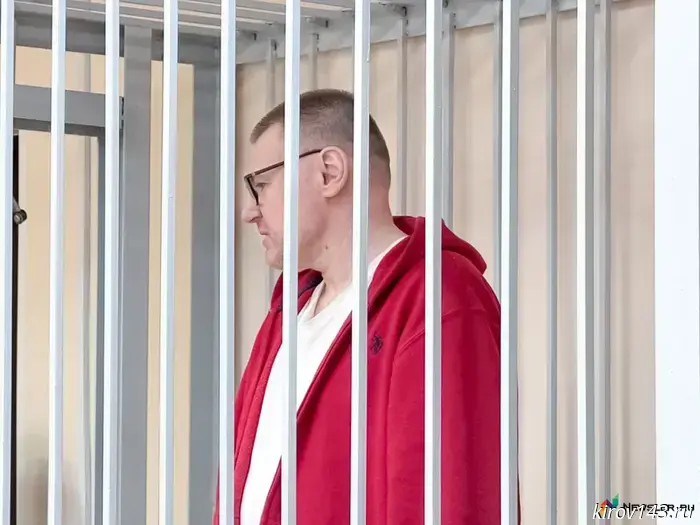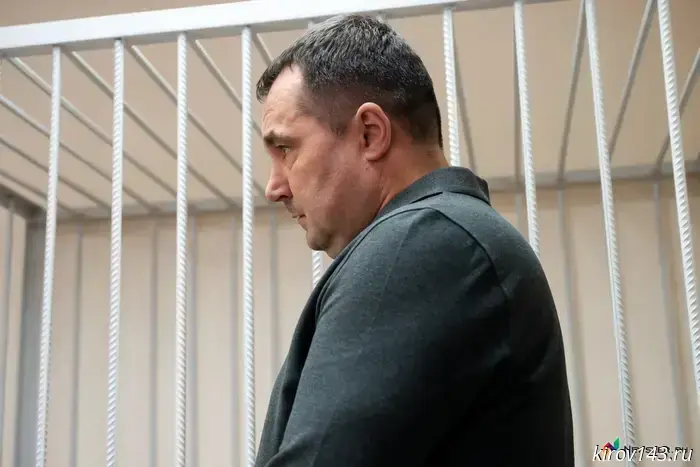
At the trial, Dolgikh complained about the guard and again asked to be released on house arrest.
At the hearing that began on Friday, October 24, Anton Dolgikh arrived nervous.
As the defendant himself said, in the morning a police officer named Vladimir tightened his handcuffs too tightly — first on his hands, then on his legs: "When they took me out to the toilet, there is a procedure. He puts the handcuffs on the hands. First of all, he tightened the handcuffs incredibly tightly. I told him about it. He said, 'It’s nothing.' I have marks! And the marks were recorded by Violetta Volkova, my defense counsel, and other people who were present. There is the same mark on the ankle. That means, after you approach the toilet, there is a possibility that the handcuffs on the hands will be removed. But then they are supposed to be put on the legs. I ask that the handcuffs be removed from my hands. Your Honor, they always put the handcuffs on normally, fastened on one click so they wouldn’t pinch. Today this police officer fastened them, as he said, on two clicks. I didn't count, but in any case it became very tight and painful, immediately painful."
According to Dolgikh, even after complaints the senior officer did not loosen the restraints. "I feel a threat to my health, to my life. I feel danger to my health, both physiological and psychological, to my health and to my life," the defendant said.
Interestingly, when defense attorney Violetta Volkova tried to intervene for the defendant, Anton reacted aggressively, shouting at the police officer, and even managing to order his counsel: "Be quiet, please." In any case, she later confirmed that there were indeed marks on his body from tightly fastened handcuffs. In fact, the marks on his wrists were visible even to those sitting in the courtroom: reddened "rings" with white circles in the center.
After that the court proceeded to consider Dolgikh's motion to ease the measure of restraint. The defendant referred to the verdict in the case of post office branch manager Elena Galysheva, who in October was found guilty under the article on abuse of official powers (part 1 of Article 285 of the Criminal Code of the Russian Federation) and fined 50,000 rubles. Dolgikh stressed that he is accused of a grave crime for the same episode, while "in Galysheva's actions the court saw only a crime of medium gravity."
"I am accused of the same thing, but a more serious one. Galysheva has been convicted, Shushakova said that I did not threaten her. I ask to change the measure of restraint to house arrest," he addressed the court.
The state prosecutor objected, noting that the verdict in Galysheva’s case is unrelated to Dolgikh’s case and is not grounds for changing the measure of restraint. The court upheld the prosecution's position: the measure chosen on August 8 was left unchanged. The court also reminded that it has been extended until January 29, 2026.
After announcing the decision, the court began questioning the witness — branch manager Elena Galysheva. Recall that earlier she entered into a pretrial agreement and pleaded guilty to abuse of official powers, receiving a fine of 50,000 rubles.
The court clarified that the questioning would be conducted "according to the rules of interrogation, but with some exceptions," since Galysheva has already been convicted.
Galysheva said that in 2023 she worked as manager of Postal Branch No. 29 in the settlement of Ganino. According to her, Anton Dolgikh did indeed come to her branch and "asked to hold onto correspondence" — letters addressed to him and to Tatyana Makarova.
"He asked to hold onto the correspondence so that letters that arrive would not be sent back if they were not picked up in time," she explained.
The witness clarified that she agreed because Dolgikh promised "to issue a bonus": "He said he would issue a bonus. For the whole period — from March to September — I received 4,500 rubles."
The prosecutor asked to clarify how the letters were issued. Galysheva explained that the correspondence was either left "behind the shutters," where Dolgikh later collected it, or handed over through postal employee Tatyana Shushakova.
"When the letters arrived, he could take them, and we would enter the delivery date later. Sometimes the date differed from what it should have been according to the rules," the witness said.
On clarifying questions about amounts and dates the woman answered uncertainly, often repeating: "I don't remember." Once, she said, the money was handed over personally by Dolgikh, another time by Shushakova.
During Galysheva's questioning Dolgikh behaved emotionally, frequently interrupting, trying to comment on the witness's answers and even evaluating the testimony.
"Do you know what 'holding letters' means? Have you even read the regulations?" he addressed Galysheva.
The court and the prosecutor repeatedly reprimanded him, but the defendant continued to argue. When the prosecutor asked to strike another question, Dolgikh, instead of falling silent, simply raised his voice.
At one point Volkova and the defendant himself began clarifying details of the postal branch's operations, confusing the Russian Post order numbers. The judge supplied the correct one: "It's not 234, but 230-P."
Material inconsistencies were found in the witness's testimony; moreover, Galysheva often answered "I don't know" and "I don't remember" to questions, so the prosecutor requested that her interrogation records be read out as those given when she was a suspect, since the answers there were more detailed. Defense attorney Volkova noted that Galysheva's testimony was given multiple times and they contradict each other as well: "If you read everything out — everything! Each testimony differs from the previous one."
The judge agreed, noting that "the contradictions are significant," and ordered that all of Galysheva's statements given at the preliminary investigation be read. After that the court announced a recess until 13:15.
After lunch the prosecutor read the protocols of Galysheva's interrogations. The questioning continued, but the time allotted for the court session ran out, so the questioning will resume on November 6.
Другие Новости Кирова (НЗК)
 Vodokanal wants to buy a remote-controlled lawn mower for 9.8 million.
The company is looking for a supplier of equipment.
Vodokanal wants to buy a remote-controlled lawn mower for 9.8 million.
The company is looking for a supplier of equipment.
 The names of the first diploma winners of Greenland's correspondence competition have been announced.
The All-Russian author-song festival "Grinlandia", chaired by State Duma deputy Oleg Valenchuk, continues to delight music fans with new competitions.
The names of the first diploma winners of Greenland's correspondence competition have been announced.
The All-Russian author-song festival "Grinlandia", chaired by State Duma deputy Oleg Valenchuk, continues to delight music fans with new competitions.
 The court set the date for announcing the sentence for Mamedov's former deputy.
A court hearing was held at the Pervomaisky District Court of Kirov on October 24 in the case of the former deputy head of the Center for Tourism Development of the Kirov Region, Ilya Pauzin.
The court set the date for announcing the sentence for Mamedov's former deputy.
A court hearing was held at the Pervomaisky District Court of Kirov on October 24 in the case of the former deputy head of the Center for Tourism Development of the Kirov Region, Ilya Pauzin.
 Residents of Kirov Oblast turned in 800 tons of old tires.
Kirov motorists can drop off old tires for free at two collection points.
Residents of Kirov Oblast turned in 800 tons of old tires.
Kirov motorists can drop off old tires for free at two collection points.
At the trial, Dolgikh complained about the guard and again asked to be released on house arrest.
On October 24, the hearing of the criminal case against Anton Dolgikh continued at the Oktyabrsky District Court in Kirov. At the hearing, the defendant complained about the actions of an escort officer, reported physical pain and fear for his life, and then again asked to be placed under house arrest. The court once again refused.
